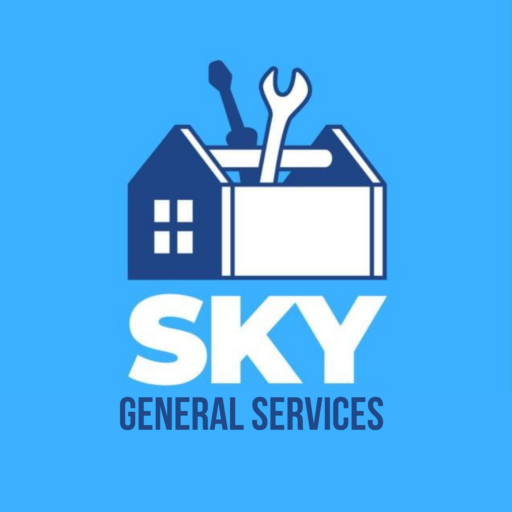Home repair tips are practical guidelines that help homeowners address common issues, improve their living space, and maintain property value.
Are you a homeowner feeling overwhelmed by the thought of repairs?
This post on home repair tips will guide you through essential fixes and upgrades that can enhance your home’s value and comfort.
From simple DIY tasks to knowing when to call a professional, you’ll discover actionable insights that can save you time and money. Dive in to learn how you can tackle home repairs with confidence!
Essential Home Repair Tools Every Homeowner Should Own
As a homeowner, being prepared for minor repairs and improvements is crucial. Having the right tools on hand not only simplifies tasks but also enhances your confidence in tackling projects around the house. Here’s a comprehensive guide to essential home repair tools that can help you with various tasks, from simple fixes to larger improvements.
1. Basic Hand Tools
Every homeowner should start with a solid set of hand tools. These are typically compact and versatile for various tasks.
- Screwdrivers: A set of screwdrivers, including flathead and Phillips, is essential for assembling furniture or tightening loose screws.
- Hammer: A hammer is necessary for hanging pictures, assembling furniture, and various other small jobs.
- Pliers: A pair of pliers can help with gripping, twisting, and cutting wires or small objects.
- Wrenches: Adjustable wrenches are ideal for plumbing repairs or tightening bolts.
2. Measuring and Marking Tools
Accuracy is key in home repairs and improvements. Having the right measuring tools can make a significant difference.
- Tape Measure: A durable tape measure is vital for ensuring measurements are precise, whether you’re installing shelves or planning a remodel.
- Level: A level ensures that your projects are straight, whether you’re hanging shelves or installing cabinets.
- Square: A carpenter’s square is useful for marking right angles and ensures your cuts are accurate.
3. Power Tools
When it comes to more extensive projects, power tools can save time and effort.
- Drill: A cordless drill is one of the most versatile tools you can own. It’s indispensable for drilling holes and driving screws.
- Saw: A circular saw or jigsaw can be particularly useful for cutting wood or other materials for home improvement projects.
4. Safety Gear
Safety should never be overlooked when working on home repairs. Equip yourself with the right safety gear.
- Gloves: Protect your hands from cuts and scrapes.
- Safety Glasses: Always wear safety goggles when using power tools to protect your eyes from debris.
- Dust Mask: A dust mask can be essential when sanding or working in dusty areas.
5. Storage and Organization
Keeping your tools organized ensures you can find what you need when you need it.
- Toolbox: A sturdy toolbox is essential for keeping smaller tools organized and portable.
- Workbench: If space allows, a workbench provides a dedicated area for your projects, making tasks easier and more efficient.
6. Additional Tools for Specific Tasks
Depending on the projects you plan to undertake, consider adding these tools to your collection.
- Paint Supplies: Brushes, rollers, and trays are essential for anyone considering home painting projects. Understanding exterior home painting techniques can elevate your home’s appearance.
- Caulk Gun: Useful for sealing gaps and cracks, which can improve both aesthetics and energy efficiency.
- Stud Finder: This tool helps locate wooden beams behind walls, ensuring that you can securely hang heavy items.
Having a well-equipped toolbox can empower you to take on various home projects, from simple repairs to significant renovations. With these essential tools, you’re not just fixing your home; you’re enhancing it, improving its value, and making it a place you truly love. Whether you’re exploring kitchen design ideas or planning bathroom renovation costs, being prepared with the right tools will make all the difference in your home improvement journey. Remember, a well-maintained home is a happy home, and with the right tools, you can keep it that way.
Top 10 Common Home Repairs and How to Tackle Them
Owning a home comes with its share of responsibilities, and knowing how to manage common repairs can save you time and money. Whether you’re just settling into your new space or have lived there for years, understanding basic home repair tips is essential. Here’s a look at ten frequent issues homeowners face, along with practical solutions to address them effectively.
1. Leaky Faucets
A dripping faucet can be both annoying and wasteful. Most leaks are caused by worn-out washers or O-rings. Start by turning off the water supply, then disassemble the faucet to replace these components. This simple fix can conserve water and lower your utility bills.
2. Clogged Drains
Slow drains can often be cleared with a simple mixture of baking soda and vinegar. Pour half a cup of baking soda followed by half a cup of vinegar down the drain. Let it sit for about 30 minutes, then flush with hot water. For more stubborn clogs, a plumbing snake can be a helpful tool.
3. Peeling Paint
Exterior home painting can enhance curb appeal but may require touch-ups over time. To fix peeling paint, scrape off the loose areas, sand the surface smooth, and apply a primer before repainting. This not only improves appearance but also protects against moisture damage.
4. Running Toilets
A toilet that won’t stop running can waste a significant amount of water. Typically, this issue arises from a faulty flapper valve. To address it, remove the tank lid, check the flapper for wear, and replace it if necessary. This quick repair can help lower your water bill.
5. Broken Door Locks
If your door lock is sticking or won’t turn, it might be time for a replacement. First, remove the lock from the door. Check for any damage or rust, and if needed, purchase a new lock that suits your style. Ensuring that your doors are secure is vital for home safety.
6. Damaged Drywall
Holes or dents in drywall can be an eyesore. For small holes, use a spackling compound to fill them in, and sand once dry. Larger holes may require a patch. Cut a piece of drywall to fit, secure it in place, and finish with joint compound for a smooth surface.
7. Drafty Windows
Feeling a draft? It could be time to reseal your windows. Remove old caulk and clean the area before applying a new bead of caulk around the frame. This will improve your home’s energy efficiency and comfort.
8. Broken Tiles
Whether in the kitchen or bathroom, cracked tiles can be unsightly. To replace a tile, gently remove the damaged piece using a chisel and hammer. Apply thin-set mortar to the back of the new tile and press it into place. Finish with grout once the adhesive has dried.
9. Malfunctioning Smoke Detectors
Safety should always be a priority. Test your smoke detectors monthly and replace batteries as needed. If a unit is more than ten years old, consider replacing it entirely to ensure your home remains safe from fire hazards.
10. Squeaky Floors
Squeaky floors can be a nuisance but are often easy to fix. Identify the source of the noise and apply a lubricant like talcum powder between the boards. If the squeak persists, you might need to secure the floorboards with screws to eliminate movement.
With these home repair tips, you can tackle common issues head-on, enhancing your living space. Each repair not only improves your home’s functionality but can also add to its overall value. Whether you’re considering kitchen design ideas or planning a larger project, being proactive about repairs will contribute positively to your home improvement journey.
How to Increase Your Home’s Value with Simple Repairs
When it comes to enhancing your home’s value, focusing on simple repairs can yield impressive results. Not only do these improvements elevate the overall appearance of your home, but they also make it more appealing to potential buyers. Here are some effective home repair tips that can help you boost your property’s worth without overwhelming yourself.
1. Freshen Up with a Coat of Paint
One of the easiest ways to transform your home is through exterior home painting. A new coat of paint can make your house look fresh and well-maintained. When selecting colors, consider neutral shades that appeal to a broad audience. This simple change can significantly enhance your exterior home design, making it more inviting.
2. Upgrade Fixtures
Another impactful area to focus on is the fixtures throughout your home. Swapping out old doorknobs, cabinet handles, and light fixtures can give your space an updated look. Choose styles that complement your overall design theme. This small investment can make a big difference in the perception of your home.
3. Focus on the Kitchen
The kitchen is often considered the heart of the home, and making it more attractive can dramatically increase your home’s value. Explore kitchen design ideas that include minor updates like refinishing cabinets or installing a new backsplash. Even small changes like changing the faucet can have a positive impact on your kitchen’s appearance.
4. Bathroom Improvements
Bathrooms are another key area of focus. Simple updates such as re-grouting tile, replacing an outdated vanity, or adding new mirrors can elevate the space without breaking the bank. Consider bathroom design ideas that maximize space and functionality, as this adds significant appeal to potential buyers. Be mindful of bathroom renovation costs; prioritizing high-impact changes can yield the best return on investment.
5. Outdoor Appeal
First impressions matter, and your home’s exterior is the first thing visitors and potential buyers see. Enhance your curb appeal with simple landscaping and ensure your lawn is well-maintained. If you have a porch or patio, consider adding lights or furniture to create an inviting outdoor space. For those looking to create a more elaborate outdoor area, hiring deck builders near me can help you design a deck that complements your home.
6. Small Repairs Matter
Don’t overlook minor repairs. Fixing leaking faucets, squeaky doors, or chipped tiles can make your home feel more polished. Create a home repair checklist to keep track of these small tasks, ensuring that nothing is overlooked. Each completed repair can contribute significantly to the overall value of your home.
7. Invest in Reliable Services
When tackling repairs, consider enlisting reliable home services for more complex tasks. This ensures that the work is done correctly and can save you time and stress. Investing in professionals for certain projects can lead to high-quality results that enhance your home’s overall appeal.
Incorporating these simple home repair tips into your routine can lead to substantial improvements in your home’s value. By focusing on both the interior and exterior, you can create a welcoming environment that attracts potential buyers and increases your property’s worth.
Understanding Home Maintenance: A Year-Round Guide
Maintaining your home is an ongoing journey that requires attention throughout the year. Each season brings unique challenges and opportunities for improvement. By understanding seasonal maintenance tasks, you can keep your home in great shape and even increase its value. Here’s a comprehensive guide to help you navigate home maintenance all year long.
Winter: Prepare for Harsh Weather
As winter approaches, it’s essential to ensure that your home can withstand the cold. Start by checking your heating system. Schedule a professional inspection to guarantee it runs efficiently when you need it most. Don’t forget to insulate your pipes to prevent freezing.
Additionally, inspect your roof for any missing shingles or leaks that could worsen with snow accumulation. Clearing gutters of debris is vital to avoid ice dams. Finally, this is a great time to explore bathroom renovation costs if you’re considering updating your space during the winter months.
Spring: Refresh and Repair
With the arrival of spring, it’s time to refresh your home and tackle repairs that may have been neglected. Begin with a thorough cleaning of your home, focusing on windows and outdoor spaces. This is also an ideal time to check your exterior home design. Consider painting your home’s exterior to protect it from the elements while enhancing its curb appeal.
Spring is also the perfect season to start planning outdoor projects. If you’ve been thinking about deck building tips, now is the time to gather resources and find deck builders near me. Additionally, inspect your landscaping and make any necessary adjustments to promote healthy growth.
Summer: Outdoor Living and Maintenance
Summer is synonymous with outdoor living. Use this time to focus on your yard and garden. Regularly mow your lawn, trim shrubs, and plant flowers to create a vibrant outdoor space. This season is also great for home improvement projects like expanding your deck or updating your patio.
Don’t overlook the importance of routine maintenance. Check your air conditioning system to ensure it’s functioning efficiently. This is also a good time to assess your home’s exterior for any signs of wear, such as peeling paint or damaged siding. If you’re considering exterior home painting, plan for this during the dry summer months for the best results.
Fall: Prepare for the Cold Again
As the leaves begin to fall, it’s time to prepare your home for winter once more. Start by inspecting your heating system again and replacing any filters. Fall is also an ideal time to clean out your gutters and downspouts, ensuring they’re free from debris before winter sets in.
Consider undertaking some kitchen design ideas or bathroom design ideas that you’ve been contemplating. The fall can be a wonderful season for renovations, as many contractors are available after the busy summer months. Be sure to create a home repair checklist that includes sealing gaps around windows and doors to keep your home energy-efficient.
Incorporating these seasonal home maintenance tasks into your routine will not only safeguard your property but also enhance its value over time. With a proactive approach and the right home repair tips, you can ensure your home remains a safe and inviting space for years to come.
Safety First: Essential Tips for Safe Home Repairs
When it comes to home repairs, safety should always be your top priority. Whether you’re tackling a small project or a larger renovation, understanding how to protect yourself and your home is crucial. Here are some essential tips to ensure a safe and efficient work environment.
Assess the Project
Before diving into any home repair task, take a moment to assess the scope of the project. Understanding what needs to be done can help you prepare adequately. Look for any potential hazards in your workspace, such as loose wiring, slippery surfaces, or unstable structures. If you’re unsure about the safety of a particular task, don’t hesitate to consult with a professional.
Gather the Right Tools
Having the proper tools at your disposal is essential for any home improvement project. Make a checklist of necessary equipment based on your repair needs. For instance, if you’re considering kitchen design ideas, you might need specific tools for cabinetry work. Always inspect your tools to ensure they are in good condition before use.
- Safety goggles
- Gloves
- Dust masks
- Stepladders or scaffolding for high places
By using the right tools and safety gear, you minimize the risk of accidents significantly.
Keep Your Workspace Organized
A cluttered workspace can lead to unnecessary accidents. Make sure to keep all materials and tools organized and within reach. Designate a specific area for your tools and supplies to avoid trips and falls. If you’re working on bathroom renovation costs, it’s especially important to keep everything tidy, as wet surfaces can easily become hazardous.
Follow Safety Guidelines
Always adhere to safety guidelines related to the specific repairs you are undertaking. For instance, if you’re handling paint or chemicals, ensure proper ventilation in the area. Read labels carefully and follow instructions for safe usage. When engaging in outdoor projects, consider finding “deck builders near me” to ensure proper building practices are followed.
Ask for Help When Needed
Don’t hesitate to enlist the help of friends or family members when tackling larger tasks. Whether it’s exterior home painting or a significant renovation, having an extra pair of hands can make the process smoother and safer. If the project feels too overwhelming, consider hiring reliable home services to assist with more complex repairs.
Know Your Limits
Recognizing your limits is crucial. If a task feels beyond your skill level, it’s perfectly acceptable to seek professional help. For example, electrical work or plumbing issues often require specialized knowledge. Consult with experts to ensure that the job is done correctly and safely.
Stay Informed
Keep yourself educated about the latest home repair tips and best practices. Engaging in community workshops or online tutorials can provide valuable insights. Understanding the basics of home maintenance not only prepares you for repairs but also enhances your overall home improvement knowledge.
By prioritizing safety and being mindful of your surroundings, you can tackle home repairs with confidence. Remember, the goal is to improve your space while keeping yourself and your home safe.
Finding Reliable Home Repair Services: What to Look For
When it comes to home repair, knowing how to find trustworthy services can save you time, money, and stress. Whether you’re tackling a small issue or a significant project, like a bathroom renovation or kitchen design ideas, it’s essential to choose the right professionals. Here are some key considerations to help you make an informed decision.
Research and Recommendations
Start your search by asking friends, family, or neighbors for recommendations. Personal experiences often provide valuable insights into quality services. You can also check online platforms for local reviews, but ensure that you focus on recent feedback. Look for patterns in the reviews; consistent praise or criticism can give you a clearer picture of what to expect.
Verify Credentials
Before hiring anyone, confirm their credentials. This includes checking for appropriate licenses and insurance. A reliable service will be happy to provide this information. Having proper licensing not only ensures compliance with local regulations but also indicates a level of professionalism and commitment to quality. Additionally, insurance protects you from liability in case of accidents during the repair process.
Ask About Experience
Experience matters significantly in home repairs. Inquire about how long the service has been in business and the types of projects they specialize in. For instance, if you’re considering a deck installation, seek out professionals who specifically mention expertise in that area. Understanding their experience with similar projects can help you gauge their capability.
Get Multiple Quotes
Don’t settle for the first estimate you receive. Gathering multiple quotes allows you to compare costs and services offered. Be wary of prices that are unusually low, as they may reflect a lack of quality. Instead, look for a balance between cost and the services included. This approach will also give you a clearer idea of the average market rate for your specific needs.
Discuss the Project in Detail
When you meet with potential contractors, discuss your project thoroughly. Share your vision, whether it’s about kitchen remodeling ideas or exterior home painting. A good contractor will listen carefully and provide suggestions based on their expertise. This two-way communication is crucial for ensuring that your expectations align with what the contractor can deliver.
Review Contracts Carefully
Before signing any agreement, read the contract thoroughly. Ensure it outlines the scope of work, timelines, payment schedules, and any warranties offered. Don’t hesitate to ask questions about anything that seems unclear. A transparent contractor will appreciate your diligence and will be willing to clarify any terms.
Check References
Request references from previous clients. A reputable service will have no problem providing you with contact information for past customers. Reach out to these individuals to ask about their experience. Were they satisfied with the work? Did the project stay on schedule and within budget? Gathering this information can help solidify your decision.
Trust Your Instincts
Lastly, trust your gut feeling. If something feels off during your interactions, it’s worth considering other options. Building a good rapport with your contractor is essential, as effective communication is key to successful home repair. Whether you’re looking for deck builders near me or specialists in bathroom renovation costs, finding someone you feel comfortable with can make all the difference.
By following these guidelines, you’ll be better equipped to find reliable home repair services that meet your needs. Remember, investing time in research and communication can lead to a smoother repair process and ultimately enhance your home’s value.
Maximizing Efficiency in Home Repairs: Time-Saving Strategies
When it comes to handling home repairs, efficiency is key. Not only does it save you time, but it also allows you to enjoy your living space without the stress of ongoing projects. By adopting some effective strategies, you can streamline your repair processes and make the most out of your efforts.
Organize Your Tools and Materials
A well-organized workspace is essential for any repair job. Start by gathering all the tools and materials you’ll need before diving into a project. Keep a home repair checklist handy to ensure you don’t miss anything crucial. Consider investing in tool organizers or a dedicated toolbox that can be easily transported. This way, when you begin a task, everything you need is within reach, reducing unnecessary trips back and forth.
Plan Ahead
Before you start any home improvement project, take the time to plan. This includes researching bathroom design ideas or kitchen design ideas that inspire you. Create a detailed schedule that outlines each step of the process, from preparation to completion. By visualizing the entire project, you can identify potential challenges in advance and find ways to overcome them without wasting time.
Utilize Technology
Today’s technology offers numerous applications that can assist you in managing home repairs. Consider using project management apps to keep track of your tasks and deadlines. You can also find online tutorials or videos that provide step-by-step guidance on various repairs. This not only helps you learn new skills but also allows you to work more efficiently, as you’ll be better prepared for each task.
Prioritize Tasks
Not all repairs are created equal. Some may require immediate attention while others can wait. Prioritize your tasks based on urgency and importance. For example, if you notice a leak in your bathroom, addressing that should take precedence over cosmetic updates like exterior home painting. By focusing on what needs to be done first, you can prevent further damage and save time in the long run.
Collaborate with Professionals
While many repairs can be tackled independently, there are instances where collaborating with professionals can save you time and stress. For larger projects, such as bathroom renovation costs or significant deck building, it may be beneficial to consult with experts. They can provide insights and help you navigate complex tasks more effectively. Searching for deck builders near me can connect you with reliable services that can assist in bringing your vision to life.
Embrace Multi-tasking
If you have multiple small tasks to complete, try to group them together. This method not only saves time but also keeps your momentum going. For instance, you could combine minor repairs, like fixing a leaky faucet and updating cabinet hardware, into one home improvement session. By tackling these smaller jobs in one go, you can maximize your productivity and make noticeable improvements to your space.
Keep a Maintenance Schedule
Creating a maintenance schedule can help you stay ahead of repairs. Regular upkeep can prevent small issues from escalating into larger ones. For example, set reminders for seasonal tasks like exterior home design checks or routine inspections of your plumbing and electrical systems. By being proactive, you can minimize the time spent on emergency repairs and maintain a well-functioning home.
Implementing these time-saving strategies can significantly enhance your efficiency in home repairs. With careful planning, organization, and the right support, you can tackle projects confidently and enjoy your improved living space sooner.
Home Repair Tips for Busy Professionals: Getting it Right
For busy professionals, the thought of tackling home repairs can feel overwhelming. However, staying on top of these tasks is essential to maintain a comfortable and functional living space. By incorporating some effective strategies and knowing the right steps to take, you can manage home repairs without compromising your valuable time. Here are some practical home repair tips designed specifically for those juggling a hectic schedule.
Prioritize Your Repairs
Begin by creating a list of repairs that need attention. Identify which issues are urgent and which can wait. This prioritization helps you focus on what truly matters, ensuring you allocate your time efficiently. For example, a leaky faucet may need immediate attention, while a minor paint touch-up can be postponed. Consider using a home repair checklist to keep track of tasks and deadlines.
Set a Realistic Schedule
Once you’ve prioritized your repairs, it’s crucial to set a realistic schedule. Block out specific times during the week dedicated to tackling these projects. Even if it’s just an hour or two after work or on weekends, dedicating time specifically for home repairs will help you stay organized and reduce stress. It’s also helpful to break larger projects, such as kitchen remodeling ideas or bathroom design ideas, into smaller, manageable tasks.
Invest in Essential Tools
Having the right tools on hand can make all the difference in your repair efforts. Stock your toolkit with essentials like a hammer, screwdrivers, pliers, a level, and a measuring tape. For more specialized tasks, consider acquiring tools related to specific projects, such as a paint sprayer for exterior home painting or a tile cutter for bathroom renovations. This preparation not only speeds up the repair process but also enhances the quality of your work.
Utilize Reliable Resources
While you may have a busy schedule, there are many resources available that can help streamline your home repair tasks. Online tutorials, instructional videos, and home improvement blogs can provide valuable guidance. Websites dedicated to home improvement projects often feature step-by-step instructions that can save you time and effort. Don’t hesitate to reach out to professionals when needed, particularly for complex tasks where expertise is crucial.
Learn Basic Skills
Investing a little time to learn basic home repair skills can pay off significantly in the long run. Understanding simple plumbing fixes, minor electrical repairs, or even exterior home design enhancements can empower you to tackle projects on your own. Many community colleges offer evening classes or workshops focused on home repair tips that can fit into your busy life.
Consider Professional Help When Necessary
While many repairs can be managed independently, some projects are best left to the experts. If you’re dealing with complicated tasks, such as significant renovations or structural issues, don’t hesitate to seek out reliable home services. Take the time to research and find trustworthy professionals, such as deck builders near me or specialists in bathroom renovation costs, to ensure that your home repairs are done correctly and efficiently.
Maximize Efficiency with Multi-Tasking
If you’re short on time, look for opportunities to combine tasks. For instance, while waiting for paint to dry during an exterior home painting project, you could tackle minor repairs in another area of your home. This approach not only optimizes your time but also keeps you engaged in the repair process without feeling overwhelmed.
Stay Organized and Keep Records
Finally, maintaining an organized approach is critical for busy professionals. Keep all your repair receipts, warranties, and records in one place. This not only helps you track expenses but also prepares you for any future renovations that may arise. Documenting your home improvements is also beneficial if you ever decide to sell your property, as it can increase its value.
By following these home repair tips, busy professionals can effectively manage their home maintenance tasks without feeling overburdened. With a bit of planning, the right tools, and a proactive mindset, you can ensure that your living space remains comfortable and well-maintained, all while balancing your professional responsibilities.

Sky Team – Home Renovation Experts. The Sky Team specializes in siding repair, painting, deck renovation, kitchen, and bathroom remodeling. We deliver quality craftsmanship and lasting solutions to enhance your home’s value and beauty.



